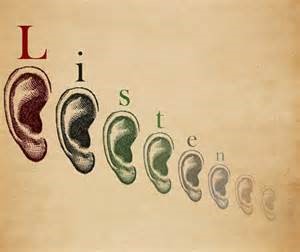We’ve all been there. Do you have a friend or colleague who often talks over you, interrupts, or one ups your stories? Glances away or fails to make the right follow up comments to show interest? Effective listening makes one feel appreciated, respected and worthy. Poor listening does just the opposite.
It’s funny that we tend to pay a great deal of attention to our ability to speak. From Toastmasters to unlimited courses and workshops, we see that speaking, especially public speaking, is a highly desirable, sought-after skill.
Public speaking is considered to be an essential ability for those who aim to advance their career in business and politics. But compared to all this attention placed on speaking, listening is virtually ignored. It can be argued that listening is every bit as important as speaking. Everyone wants to be heard and understood, and really that’s how trust and loyalty are gained.
“The most basic of all human needs is the need to understand and be understood. The best way to understand people is to listen to them.”
– Ralph G. Nichols
From Forbes, come these tips below on being the best listener you can:
1. Face the speaker and maintain eye contact.
2. Be attentive, but relaxed.
3. Keep an open mind.
4. Listen to the words and try to picture what the speaker is saying.
5. Don’t interrupt and don’t impose your “solutions.”
6. Wait for the speaker to pause to ask clarifying questions.
7. Ask questions only to ensure understanding.
8. Try to feel what the speaker is feeling.
9. Give the speaker regular feedback.
10. Pay attention to what isn’t said—to nonverbal cues.
